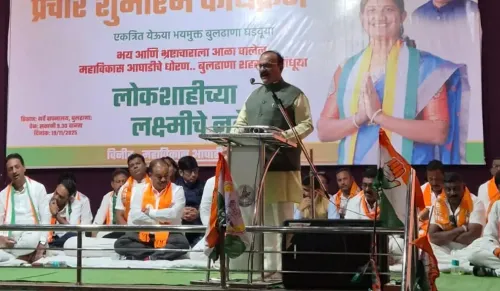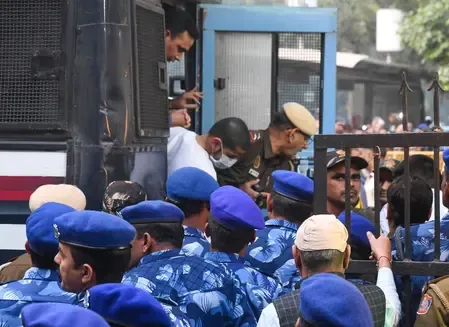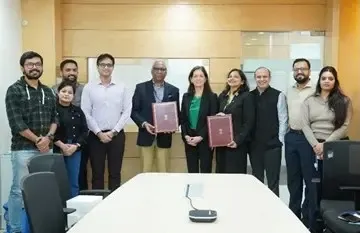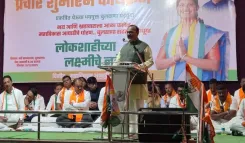Will Bengaluru Become a Plastic and Waste-Free City?
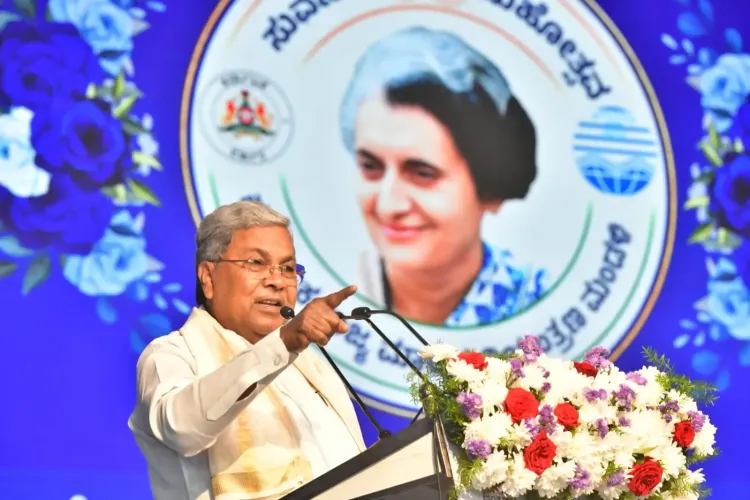
Synopsis
Key Takeaways
- Bengaluru aims to go plastic-free by 2030.
- Public awareness is crucial for success.
- Segregation of waste is encouraged.
- KSPCB's endowment fund supports environmental initiatives.
- Environmental pollution in Bengaluru is a significant concern.
Bengaluru, Nov 19 (NationPress) Karnataka Chief Minister Siddaramaiah announced on Wednesday that the city, often labeled as a garbage city, is set to undergo a significant transformation, aiming to become a plastic and waste-free environment.
Siddaramaiah emphasized that Bengaluru generates a staggering 900 tonnes of plastic each year, issuing a warning that without public awareness, achieving a plastic-free city will remain unattainable.
“With the collaboration of the public and government, Bengaluru can achieve this goal by 2030,” he stated during the inauguration of the Golden Jubilee celebrations (2025) for the Karnataka State Pollution Control Board (KSPCB), which commemorates 50 years since its inception.
He noted that central government statistics indicate that 131 cities in India surpass safe pollution levels.
“Cities like Bengaluru, Hubballi-Dharwad, Davangere, and Kalaburagi are among the most polluted in Karnataka. This alarming trend could render parts of Bengaluru unlivable in the future. It’s imperative for citizens to cultivate a passion for the environment,” he remarked.
Siddaramaiah urged citizens to segregate their waste into wet and dry categories, while industries should manage their waste responsibly to protect both society and the environment.
He also revealed that the KSPCB has initiated an endowment fund of one crore rupees, with the interest generated to fund annual environmental programs and recognize at least five environmentalists each year in honor of the late Padma Shree Saalumarada Thimmakka, a notable environmentalist.
Today also marks the birth anniversary of former Prime Minister Indira Gandhi.
“On this day in 1974, the KSPCB was founded. Indira Gandhi implemented several pivotal laws aimed at the conservation of the environment and forests,” he added.
According to reports from the central government, numerous Indian cities are grappling with high pollution levels, including Bengaluru, Davangere, and Kalaburagi, a situation that warrants serious attention.
KSPCB Chairman P. Narendraswamy mentioned that the Golden Jubilee celebrations resonate with the aspirations of the state's populace.
He reflected on the World Environment discussions held in 1972 at the Stockholm conference under the auspices of the United Nations, which led to the establishment of the Board.
“Now, half a century later, the Board celebrates its milestones, fulfilling Indira Gandhi’s vision, hence the significance of this event,” he concluded.


